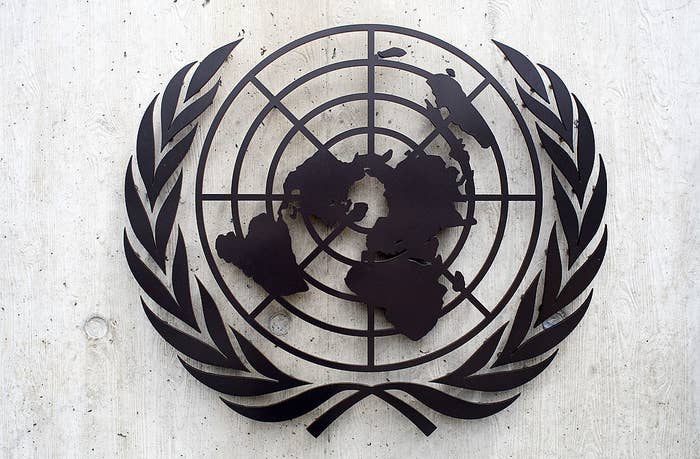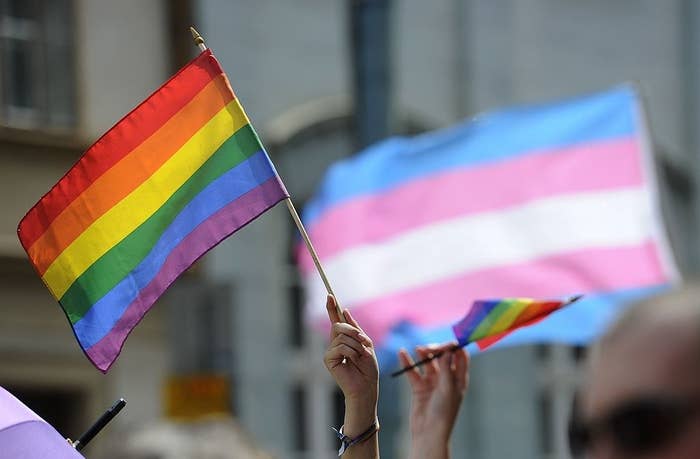
State governments are being forced to grapple with a law that requires transgender people to divorce before changing their birth certificates, following a landmark UN ruling revealed by BuzzFeed News last week.
The United Nations Human Rights Committee published a decision on June 15 declaring Australia's transgender "forced divorce" laws are in violation of international human rights law.
The committee found in favour of a married transgender woman from New South Wales, identified only as G, who had tried unsuccessfully on multiple occasions to change the sex on her birth certificate.
The UN decision was related to federal law and state law in NSW, however laws with the same effect exist in Victoria, Queensland, Western Australia, Tasmania and the Northern Territory.
Despite the landmark decision, timely reform looks unlikely in most jurisdictions. We asked the states and territories with transgender "forced divorce" law for their response to the UN decision, and whether they plan to change anything.

There is a possibility of reform in the Northern Territory. The attorney-general and minister for justice, Natasha Fyles, told BuzzFeed News the government is currently updating legislation to remove discrimination on the basis of gender identity, among other things.
"The Department of Attorney-General and Justice is working efficiently through potential anti-discrimination legislation reforms so that Territory laws uphold our community’s values. This will include reforming Territory laws to ensure there is no discrimination or vilification on the basis of sexuality, gender identity or intersex status."
A spokesperson for the Tasmanian government said it would wait for the new anti-discrimination commissioner to get across an options paper before it would consider any changes to the law around recognition of sex and gender.
"The former Anti-Discrimination Commissioner released an options paper in relation to the legal recognition of sex and gender diversity in Tasmania in 2016. A new Anti-Discrimination Commissioner has since been appointed, and it is appropriate that she consider the work already undertaken. The government will consider any recommendations after this process has concluded."
A spokesperson for the Queensland attorney-general, Yvette D'Ath, referred BuzzFeed News to the federal government.
"This is initially a question for the New South Wales government. Thereafter, the Office of International Law in the federal attorney-general’s department coordinates the Australian government's response to these communications and prepares Australia’s submissions to the relevant committee."
A spokesperson for the WA attorney-general, John Quigley, told BuzzFeed News the state had no plans to take action on the UN decision.
"As far as I’m aware the state government currently has no plans to introduce legislation to amend the Gender Reassignment Act."
In Victoria, the only state that previously tried and failed to ditch the forced divorce requirement, reform is on hold for now. Attorney-general Martin Pakula told BuzzFeed News the state is prevented from introducing similar legislation in the same term of government under the Victorian Constitution.
"The Andrews Labor Government is leading the way when it comes to LGBTI equality, and we've been working hard to remove barriers and discrimination in Victoria. We were bitterly disappointed when the Liberal National Coalition voted against our important bill – which was fundamentally about respect and dignity.
NSW is currently consulting with the Australian government, which is due to respond to the UN by December 15.
Last week, NSW attorney-general Mark Speakman did not comment directly when asked if the state would amend the law. He instead told BuzzFeed News that changing the sex on your birth certificate could void the marriage anyway, given same-sex marriage is not legal in Australia.
"The effect for a married person of amending the sex recorded on the register from that recorded at birth, and the subsequent issuing of a new birth certificate, may be the marriage itself being voided.
"This result may apply notwithstanding the legal position in any state or territory."
South Australia and the Australia Capital Territory have both removed the divorce requirement.
